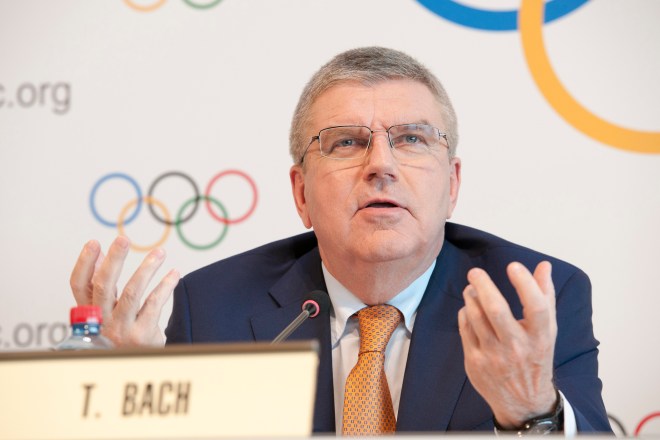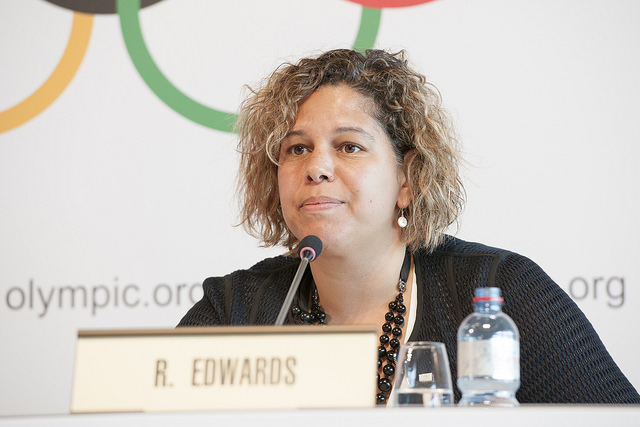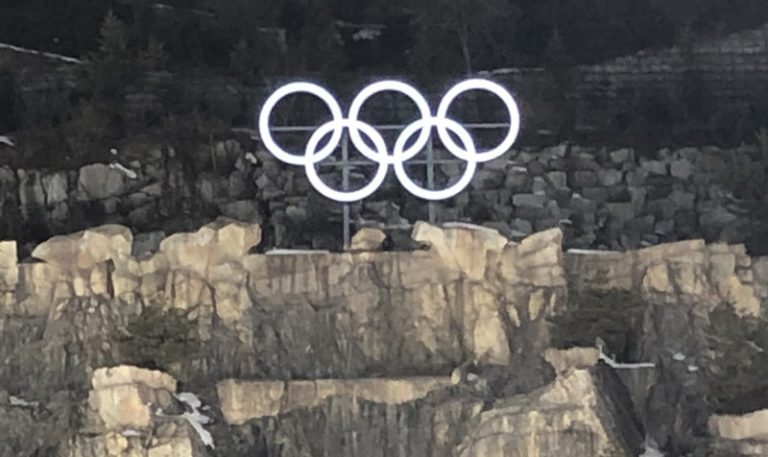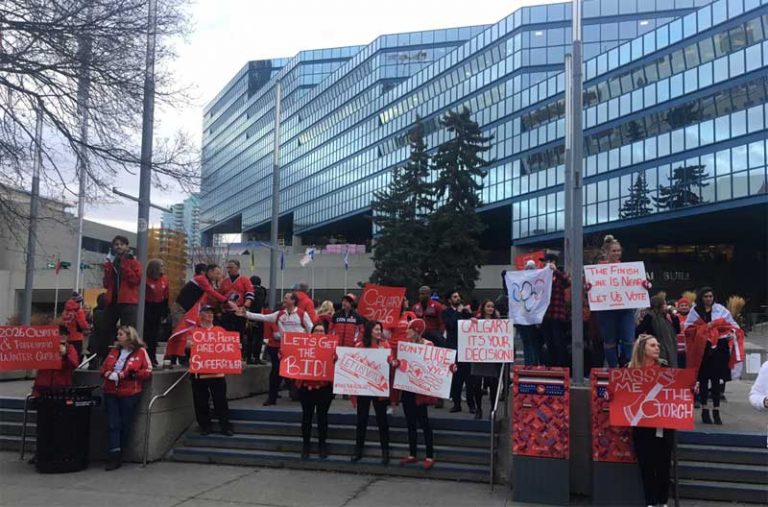
Bidweek, Reporting From Toronto, Canada – Maybe I’m blowing this out of proportion. Or maybe the email I received Tuesday is really the start of something special. I’m betting on the latter – perhaps foolishly.
The common, undeniable opinion about the International Olympic Committee (IOC) and the Olympic Movement in recent months is that change is needed – fundamental change unlike anything the organization has seen in decades. When IOC President Thomas Bach was elected to his post in 2013 he campaigned with the promise of change, and the agent of change was a 40-point proposal named Agenda 2020.
For the most part, especially with respect to the Olympic bid process, Agenda 2020 has failed.
Left with only two bid cities for 2024, and the dilemma that electing only one could cause resentment from the other important Olympic nation – Bach set forth a plan to have both cities become ‘winners’ by having one host in 2024 and the other in 2028. But that didn’t entirely solve the problem as both cities really want 2024, and consider the 2028 edition only a consolation prize for the ‘loser’.
Bach, during a press conference about the double-allocation, claimed it was only a win-win-win situation and deflected questions about how the editions would be awarded and what impacts the decision may have on other cities interested in bidding for future Games. He claimed each city would be receiving a ‘present’ – a backward message that had bid opposition groups fuming.
Then Bach, apparently trying to create a distraction, stumbled around a complicated German bird metaphor that had the international press breaking out their “fidget spinners” in order to maintain focus on what really matters.
But on that day there were no answers. There was only more confusion for cities hoping to host the Olympic Games.

Then on Tuesday I received an email from the IOC Press Office with the topic “Comments on reports about Calgary estimated budget.”
It immediately piqued my interest because (a) the casual nature of the title was a far cry from the more formal and capitalized headings found on official press releases from the IOC, and (b) it suggested the content contained comments from the IOC on Calgary 2026 – a bid that is yet to even be a bid.
The IOC often goes to great lengths to avoid official written comment on bid cities, especially before they’ve even submitted an application. And even then, there would have to be something very special for the IOC to believe it had to weigh in on, whatever topic it may be.
Though it may not seem so on the surface, this topic is indeed something special, something of great importance to the IOC. Even of great importance to the future of the Olympic Movement.
Along with Calgary, the only other 2026 bids that have showed any kind of organization or promise are from Sion, Switzerland and Innsbruck, Austria. On the surface they’re both excellent bids, from great European winter sport nations – either would likely make excellent hosts in 2026.
Sion has already declared its candidacy while Innsbruck just Wednesday released a promising feasibility study and is still kicking the tires.
But there is one major problem for both. Each of those cities will have to pass a general referendum on the bid in order to move forward. For Innsbruck it will be October 15, Sion’s will be held next year. In Europe of late, all Olympic bid referendums have ended in failure. So many bids have been stopped by public votes that I won’t even bother listing them here.
The IOC is well aware of this problem, and they know one thing – if Calgary doesn’t throw its cowboy hat into the ring, the Winter Games could end up with a much worse host city than the snowless Beijing in 2022 (The Chinese capital was awarded the Games ahead of Almaty, Kazakhstan after four European cities dropped out of the race).
So yeah, it’s a big deal. When the IOC started to read headlines about a Calgary Games being too costly, and too risky – fear would have set in. There had to be a reaction.
The email I received Tuesday began so casually “We thought the following comments would be of interest,” it read, as if the sender didn’t want to interrupt my busy day with such trivial matters.
The email explained how the IOC was already working closely with the bids, including Calgary’s, and more importantly – how Calgary hadn’t seemed to have taken full advantage of the Agenda 2020 reforms. The IOC believes the CAD $4.6 billion (USD $3.5 billion) price tag for the Games is overstated.
“We remain confident that by working together to refine operational planning, that opportunities exist for significant savings,” the email read.
It didn’t specify exactly how the budget could be improved, but one possibility is perhaps all the facilities that Calgary is proposing are not required. Maybe relaxed regulations mean only one arena is required instead of two. It may be possible to hold the ski jump in newer facilities at Whistler instead of undertaking costly upgrades in Calgary. We can’t be sure, an update to the 2026 bidding rules are set to be released July 11.
But I think one message is clear. This IOC reaction is akin to saying “hey, if it’s too expensive, let’s work something out.” And even more clear is this: the IOC wants the forum of public opinion to know that hosting the Games is an open negotiation; that the IOC is willing to leave the old rules behind and find a mutually beneficial plan.
They want the public to remain behind the bid.
Will it really be a negotiation? Perhaps. But the IOC wants to be part of that dialog.
The email was signed “The Media Relations Team.”
Weighing in on the rhetoric is a new strategy and a new direction for the IOC as the organization struggles to attract viable host cities for its quadrennial mega-events.
Also new is the IOC appointment of Rebecca Edwards to the newly created role of Strategic Communications Director. Is she “The Media Relations Team” who orchestrated the message? I wouldn’t doubt it.

Edwards first met the media during the IOC Executive Board meeting earlier this month in Lausanne. Unfortunately I missed it, but apparently she introduced herself at a breakfast meeting. It would have been interesting to chat with her.
Since 2010, she has been working for General Electric, where she began her time as Global Director of Employee Communications, before moving to GE Oil & Gas in London as the Chief Communications Officer in 2013. She began her career at Dow Jones News Service and was promoted to a reporting job at The Wall Street Journal, before receiving a master’s degree in business administration and becoming a marketing executive at the Journal.
Could Edwards be the person, finally, who will take control of the IOC’s message, and pull the organization out of a tailspin that has seen cities around the world outright rejecting the opportunity to host the most popular event in the world?
Can she pull the curtain back and make the IOC’s message a relevant part of its own narrative?
I can’t wait to find out.
What other emails do you have in store for us?


